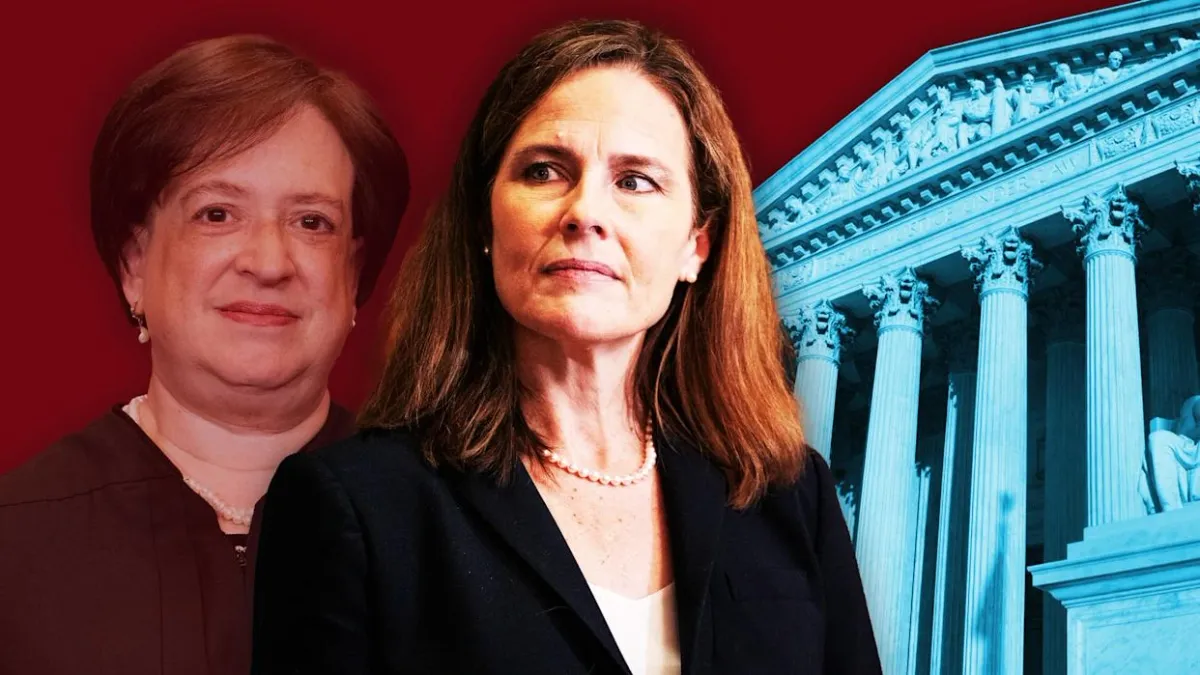Trump Appointee Barrett Challenges Administration on Nationwide Injunctions, Surprising and Delighting Liberals
Justice Amy Coney Barrett's discussion with Trump Solicitor General John Sauer on birthright citizenship case sparks concerns among Trump allies over potential shifts in court precedents.

The U.S. Supreme Court was at the center of national attention Thursday as Justice Amy Coney Barrett engaged in a pointed exchange with Solicitor General John Sauer, representing the Trump administration, during oral arguments on the contentious issue of birthright citizenship and the authority of lower courts to block executive actions nationwide.
Barrett, herself appointed by former President Donald Trump, pressed Sauer over whether the administration respected federal court precedent—a line of questioning that echoed concerns raised by her colleagues, Justices Kavanaugh and Kagan. The tone sharpened when Barrett challenged Sauer on the government’s willingness to adhere to circuit court rulings.
"I want to ask you about a potential tension," she began, quickly correcting herself to call it an actual tension in Sauer’s previous answers. At issue was whether the Trump administration might ignore a Second Circuit decision it disagreed with, particularly relating to the constitutionality of Trump’s birthright citizenship order.
Barrett’s skepticism grew as Sauer described the Department of Justice’s practice as one that “generally” followed circuit court precedent, but with exceptions—especially while seeking to overturn such precedents. Pressed further, Sauer maintained that this approach represented long-standing DOJ policy, eliciting incredulity from Barrett who sought clarity on what the government would do immediately after a decision like the Second Circuit's.
- Justice Barrett: “What do you do the next day, or the next week?”
- Sauer: “Generally, we follow this.”
- Barrett: “So, you’re still saying generally?”
The back-and-forth quickly reverberated outside the courtroom, sparking fierce commentary across social media. Democratic strategist Max Burns highlighted that the Trump legal team appeared to claim a right to disregard unfavorable rulings unless stopped by the Supreme Court itself. DNC delegate Seth Taylor called such an approach “constitutional brinksmanship.”
But criticism did not only come from the left. Conservative commentator Cash Loren voiced frustration with Barrett, labeling her as potentially the “worst SCOTUS pick ever by a Republican,” and suggesting her questioning evidenced “disdain for the Trump administration.”
Thursday’s clash follows earlier moments of divergence between Barrett and the administration that nominated her. Earlier in 2024, Barrett sided with the Supreme Court’s liberals and Chief Justice Roberts in a 5-4 decision denying the Trump administration’s request to block billions in USAID funds—an outcome that drew heavy fire from Trump’s most loyal supporters, who continued to label her insufficiently loyal.
Despite mounting criticism, others have come to Barrett’s defense, pointing out her conservative track record and the importance of lifetime appointments for judicial independence.
Asked about the backlash against Barrett, former President Trump deflected, describing her as “a very good woman” and expressing ignorance about the nature of the attacks.
Legal analysts suggest the ultimate outcome of the case could hinge on the votes of Trump appointees Barrett and Neil Gorsuch. George Washington University law professor Jonathan Turley encapsulated the scene as “sporty”—noting the unusually lively exchanges among justices.
“Justice Barrett is probably the greatest concern right now for the Trump administration,” Turley observed, underscoring how pivotal every question and vote will be as the Supreme Court weighs both executive power and the scope of judicial oversight in the coming decision.
